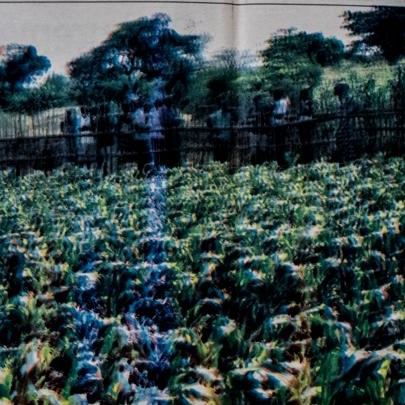
As climate change effects continue to spill all over the globe, Malawi continues to be hit by the effects resulting in low crop production.
Being an agro-based economy, to sustain and improve growth, the country needs to increase its production and grow its export base.
But this can only be achieved if farmers can move from rain-fed agriculture to irrigation agriculture, which will enable them to grow two to three times a year.
While the government is promoting the Greenbelt Initiative, financial institutions on the other hand are playing the role in providing loans to private sector players to invest in irrigation agriculture.
The Malawi Innovation Challenge Fund (Micf), a competitive grant facility for businesses to finance innovative projects is one such institution.
About a month ago, Micf, opened up entries to funds amounting to $4 million to finance irrigation projects in the country.
Micf Project Director, Buddhika Samarasinghe, said the irrigation window aims to introduce new initiatives that deliver new products, services and business models.
He said these initiatives link smallholder producers to markets by increasing the production of crops under irrigation, leading to viable self-financed cultivation of irrigated crops.
“The window wants to introduce irrigation systems to raise productivity of smallholder crops for both export and domestic markets. We would also want to see the development of more energy efficient irrigation systems that match the resources available to poorer smallholder producers to improve productivity and incomes they receive from their agricultural products,” Samarasinghe said.
The Malawi Innovation Challenge Fund is a $ 14 million competitive, transparent mechanism that provides grant finance for innovative projects proposed by the private sector, which are active in Malawi’s agricultural, manufacturing and logistics sectors.
It is supported by the United Nations Development Programme, UK Aid and KFW with International Fund for Agricultural Development (Ifad) being a new entrant.
According to statistics from the ministry of Agriculture, private sector growth in the irrigation sector has stagnated at between one and half percent to two percent for the past 13 years.
Director of Irrigation in the Ministry of Agriculture, Jeffrey Mamba, said the private sector is supposed to take a leading role in irrigation just like in other countries.
“Over the past 13 years, we have seen private sector growth in the agriculture sector being at around two percent, so we would like to invite the private sector to play a leading role because in most countries when we talk about irrigation, it is the private sector that takes a leading role unlike here.
“The challenge fund will allow the private sector to partner government, by that we will help to uplift the lives of the smallholder farmers by providing them with markets,” Mamba said.
He said access to finance and land are some of the major challenges that contributed to the slow growth.
“When we talk to the private sector, they say access to financing and land are the root cause. We are hoping that the new land law will assist in allowing the private sector to easily access land,” he said.
Mamba said the window is an important step in contributing to the resilience of smallholder communities, and supporting them through irrigation technologies to improve both their livelihoods and the productivity of landholdings.
“The MICF provides a new private sector driven approach to complement the three overall goals of the Programme for Rural Irrigation Development (Pride) programme, supported by the International Fund for Agricultural Development (Ifad). The goals include providing smallholder farm households a combination of irrigation and soil and water conservation infrastructure; promotion of good agricultural practices; and linkage to improved value chains.
“In this respect the Irrigation window will be one of the key instruments to stimulate innovations and competitiveness in component two of the programme, developing agriculture and market linkages through the deployment of irrigation technologies, products and services,” he said.
Mamba also said the window will harness one of the core strengths of the private sector in Malawi with its ability to generate and test new ideas, as the first two rounds of the MICF have so clearly demonstrated.
“It also entails taking a hard-headed, business-oriented approach to the important issue of integrating irrigation technologies into smallholder farming systems and benefiting the poor,” he said.
However, Mtalimanja Holdings Limited Managing Director, David Kamchacha, who is one of the private sector players in irrigation, said irrigation projects are expensive and with the availability of the challenge fund it means projects will move faster.
“The main reason for the slow growth is the high cost involved in irrigation and also the background as to where as a country we are coming from. The country had irrigation schemes from Karonga to Nsanje which were well built but later abandoned.
“This time around the companies that are in commodity trading have seen that irrigation is the way to go and with the climate change where we cannot predict the weather, irrigation remains crucial to produce more and be able to sustain our markets,” he said.
